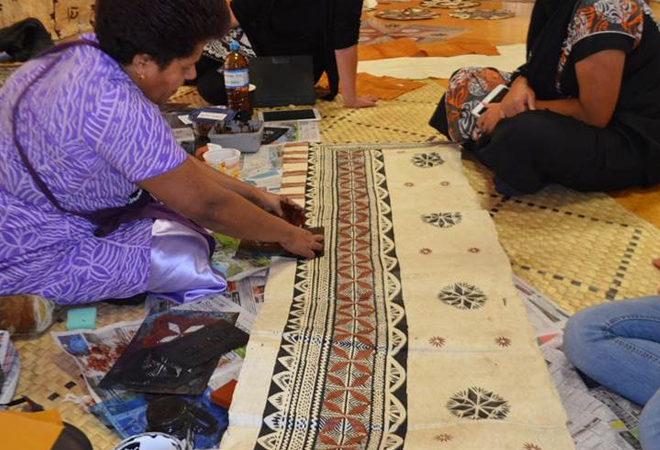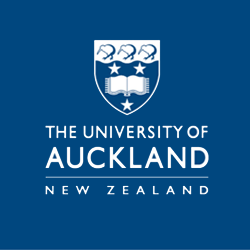
Youth cultural heritage empowerment programme
Status
Completed: 15 November 2018
Project Details
A 2-year project, completed in 2018, to empower Pacific students who are struggling with education, through the use of Pacific taonga/treasures to reignite their passion for learning. A project undertaken by the Centre for Pacific Studies at the University of Auckland, with support from the New Foundations Trust and Wesley College.
Aims:
The main aims of the project were to:
- provide support to Pacific students who may find it difficult studying in a new tertiary environment
- empower disadvantaged and marginalised Pacific students who are transitioning into tertiary education programmes
- use Pacific taonga/treasures to inspire Pacific students, reduce negative behaviour and instil positive behavioural changes
- develop strong role models and build strong relationships between Pacific students and their education providers and families.
Methodology:
The project methodology was based on a number of indigenous research models, including the Talanoa research process, and involved:
- a review of the literature including indigenous research models
- a pre and post survey questionnaire
- using Pacific taonga/treasures as cultural learning tools
- delivering sessions about traditional knowledge including linking Indigenous knowledge and science with Western science and mathematics
- taking a collaboration and partnership approach with learners through group work, which was an important method of generating discussion amongst students
- the creation of a giant tapa (bark-cloth) by the students.
Team

Tarisi Vunidilo
Project leader
The University of Auckland
Betty Loto
The University of Auckland
Kali Vunidilo
The University of Auckland
Peni Fa’Alogo
The University of AucklandGade Gaunavou
Tapa (Masi) Artist, FijiStatus
Funding
$26,850.00 (excl GST)
Key Findings
The key findings from the project included:
- Learners indicated an almost universal support from their family for their enrolling in a tertiary qualification. There were no negative responses. This response was corroborated during the programme when each student stood up to share their ‘Talona’ (critical narrative) about their journey. Family support, and also expectations, played a large part in their motivation to attend the UniBound programme, and to make the most of all opportunities to be successful in their academic endeavours.
- Analysis of the findings showed that between two thirds and three quarters of participants connected strongly with different aspects of the cultural knowledge and traditions covered in the programme. Eighty percent would recommend the programme to others, and 76% were interested in continuing to learn about their culture by undertaking further Pacific Studies programmes at the university.
- The findings showed that when young people are reminded of how rich their culture is, and how brave their ancestors were, it enhances cultural pride, increases self-esteem and builds a sense of self-efficacy.
- One of the interactive activities in the classroom, about family genealogy, resonated with most learners in the ‘Cultural Treasures’ programme. Students recognised that knowing where their family originally came from, and how they as individuals had come to be where they are today, was a strong aspect of their cultural identity as Pasifika students.
- There was a sense of pride amongst the students as they discovered more about the creativity and intuition of their ancestors through their own hands-on inquiry into traditional Pacific navigation, tapa-making, carving and mat-weaving. The learners generally preferred active learning exercises, which supported a kinaesthetic learning style. This observation also aligns with traditional cultural learning and teaching styles of learners working alongside elders, in an ako-ako relationship of reciprocity and sharing.
Key Recommendations
The key recommendation from the project was:
Suggestions for the future | Suggestions for the future included: opportunities to run and develop the programme within a variety of institutions locally, nationally, and internationally; including cultural identity (the Cultural Treasures Youth Empowerment Programme) as its own module within tertiary institutions; and developing the resources and running workshops to train people to implement the Cultural Treasures Youth Empowerment Programme.
A project report prepared by Tarisi Vunidilo, Betty Loto and Kali Vunidilo.
(PDF, 2.4 MB, 30-pages).
- 15 November 2018